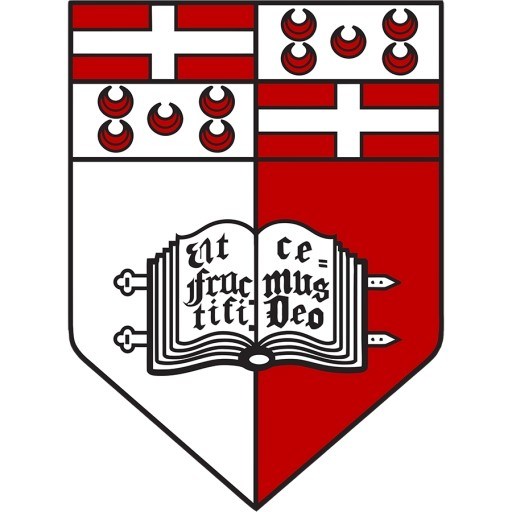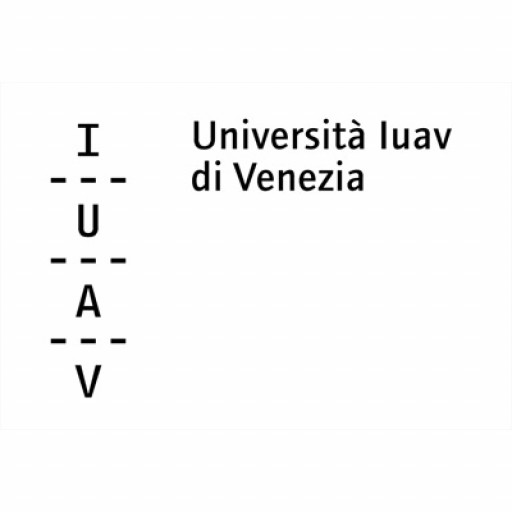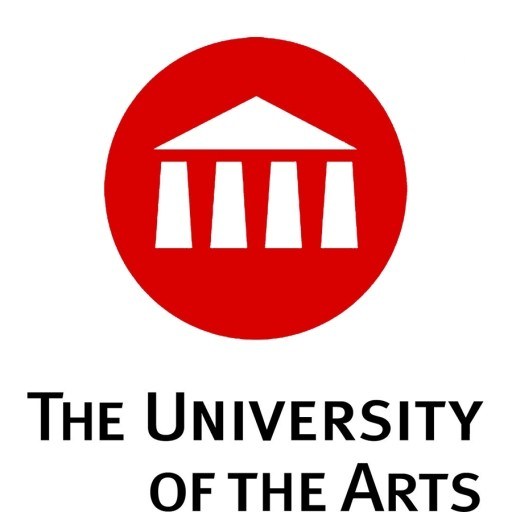Advertisement
Does your organisation need people who are creative thinkers, people with new ideas who can use these skills to plan and make sure it has a healthy and competitive future?
This exciting masters programme, an International M.Sc. in Strategic Innovation and Future Creation develops the skills and knowledge you need to adapt to new context and situations and offer your organisation a successful future.
Study at three universities across Europe
The course is delivered between four European universities. It gives you a unique opportunity to experience learning at the heart of Europe. Study at:
* University of Malta, Malta
* University of Potsdam, Germany
* University of Turku, Finland.
The programme is delivered by experts from each university, covering four main subject areas: creativity and idea generation, innovation management, foresight/ futures studies and entrepreneurship.
For more info contact:
The M.Sc. in Strategic Innovation and Future Creation is split into four main subject areas, namely creativity and idea generation, innovation management, entrepreneurship and foresight/futures studies. The programme will be delivered mainly by asynchronous e-learning complemented by three intensive residential seminars of one week each, spread over two years (one week at each partner University).
Course Schedule
The M.Sc.programme will be delivered mainly by asynchronous e-learning complemented by three intensive residential seminars of one week each, during the first year of the programme. The programme offers students a great degree of autonomy and flexibility.
Audience
This exciting masters programme emphasises the transfer of skills and knowledge to adapt to new situations. The course is designed for those who are unable to leave their place of work for lengthy periods due to their commitments.
Lecturers
Leonie Baldacchino
Dr Leonie Baldacchino holds a PhD in Entrepreneurship from Warwick Business School (UK), an MA in Creativity and Innovation (Distinction) and a BPsy(Hons) from the University of Malta. She is the Director of The Edward de Bono Institute for the Design and Development of Thinking at the University of Malta, where she has been lecturing on entrepreneurship, creativity and innovation since 2008. She is also a Board Member of the Centre for Entrepreneurship and Business Incubation and of the Cottonera Resource Centre, both forming part of the University of Malta, and an Associate Fellow at Warwick Business School (UK). Since 2009, Leonie has been involved in the coordination and organisation of various entrepreneurship-related incentives at the University of Malta, including the Global Entrepreneurship Week events hosted locally by The Edward de Bono Institute, and the entrepreneurship stream on the Degree Plus programme. She has also lectured on entrepreneurship, creativity and innovation at Warwick Business School (UK), at Teesside Business School (UK), and at the Malta College of Arts, Science and Technology, and has delivered numerous presentations and workshops locally and overseas.
Sandra Dingli
Professor Sandra M. Dingli obtained her PhD from the University of Durham, U.K. She conducts workshops and delivers lectures on creativity and innovation management, foresight, the de Bono thinking techniques, philosophy of mind and philosophy of artificial intelligence to undergraduate and postgraduate students. Sandra was instrumental in setting up the Institute in collaboration with Professor Edward de Bono in October 1992. In 2004 Sandra designed and launched a new postgraduate degree, a Master of Arts in Creativity and Innovation. Sandra has organised five International Conferences on Creative Thinking at the University of Malta. Five books with selected proceedings of the International Conferences have been edited by Dr Sandra M. Dingli and published by the University of Malta Press. As Director of The Edward de Bono Institute Sandra coordinated eInnForM (European Innovation and Foresight Masters), a three-year project funded under ERASMUS curriculum development which involved designing the curriculum and launching the MSc in Strategic Innovation and Future Creation.
Roy Fewster
Roy Fewster was a Divisional Director with a major UK public limited company (plc) and has been the managing director of several companies during his corporate career. He has direct experience of general management and business development achieving business growth through start-up ventures, acquisitions and organic methods. More recently he has experienced life as a private entrepreneur, making the transition from employee to entrepreneur and working full-time running his own medium-sized service business which he acquired by putting together an MBI (management buy-in) deal. In 2003 Roy turned his attention towards developing an academic career and is currently pursuing his research interests in the field of entrepreneurship. He teaches entrepreneurship at masters level at the University of Teesside and is active as a consultant on strategic enterprise development in the SME sector. His specific research interests are in the areas of entrepreneurial behaviour, positive psychology and corporate entrepreneurship.
Sirkka Heinonen
Sirkka Heinonen works as a Professor of futures studies at the Finland Futures Research Centre (FFRC). Her fields of expertise include futures studies, philosophy of technology, the future of cities, rural areas and regions, future of living and working, telepresence and ambient intelligence, technology foresight, information society, sustainable development, innovations and social media. Before the FFRC she worked at VTT (Technical Research Centre of Finland) for several years, first as a Senior Research Scientist (1997-2001) and then as a Chief Research Scientist (2001-2007). She is an Adjunct Professor at the Turku School of Economics. Sirkka has written several research reports and scientific articles in refereed journals as well as papers on national and international conferences. She has given lectures at several universities and is a frequently invited futures research expert both for the government and the private sector. Her work as a Visiting Research Fellow in Japan at the National Institute for Research Advancement (NIRA) required comprehensive familiarisation with the field of futures studies on the global level.
Uta Herbst
Prof. Dr. Uta Herbst is a professor for Business Administration, with Marketing being her core subject, at the University of Potsdam. She holds a Ph.D. from the University of Hohenheim. From 2007 to 2012, she was a Junior Professor at the European Business School Oestrich-Winkel and the University of Tübingen. Her research mainly focuses on Negotiations, Business-to-Business-Marketing and Business Development. In 2013, she founded the Negotiation Academy Potsdam, where she holds the position of Director. The Negotiation Academy Potsdam focuses on Research, Executive Education and Science-Practice-Dialogue. Since 2008, Prof. Dr. Uta Herbst is also managing partner of a consulting firm, which offers Consulting, Research and Coaching, especially in Business-to-Business-Marketing.
Katharina Hölzle
Katharina Hölzle is the chair holder of the Chair for Innovation Management and Entrepreneurship at the University of Potsdam since May 2011. From 2010 - 2011, she held the Deutsche Telekom Assistant Professorship for Leadership and Organization of Innovation at the University of Technology (TU) Berlin. She teaches entrepreneurship, innovation and technology management at the Bachelor, Master and Executive Master level. She is also a lecturer at the Hasso Plattner Institute, the Hasso Plattner School of Design Thinking, and the TU Berlin. Her research areas are business model innovation, barriers to innovation, collaborative innovation, strategig foresight and Entrepreneurship. She advises companies on questions of strategic technology and innovation management as well as corporate entrepreneurship. She has published various articles in leading academic journals such as Creativity and Innovation Management, International Journal of Innovation Management, and others.
Juha Kaskinen
Juha Kaskinen has been the Director of the Finland Futures Research Centre (FFRC) since May 2005. In 2004-2005 he worked in the FFRC as a Coordinator of International Affairs and earlier as a Senior Researcher (1999-2002). During the years 2002-2003 Juha was employed by the Association of Finnish Local and Regional Authorities, where he was responsible for research projects on futures studies. Juha's fields of expertise include future studies, environmental sociology, indicators, expertise studies, theory of planning, regional and local business policy and local and regional development and innovation policy.
Margaret Mangion
Dr Margaret Mangion obtained a Doctorate in Social Sciences from the University of Leicester (UK) and an MBA from Maastricht Business School of Management. Prior to that, she obtained a Post Graduate Certificate in Education and an undergraduate Degree in Psychology and Communication Studies from the University of Malta. Margaret currently lectures on creativity and innovation at the Edward de Bono Institute for the Design and Development of Thinking. Prior to joining the University of Malta, Dr Mangion held various posts in the private sector and the public sector. Her work experience was further enhanced through employment for a global Blue Chip company in England.
Shirley Pulis Xerxen
Ms Shirley Pulis Xerxen obtained a Master of Arts in Creativity and Innovation from the University of Malta in 2006 and a postgraduate Diploma in Education (Administration and Management) in 2005 after having read for a B.Ed. (Hons) degree. Shirley currently lectures at the University of Malta on thinking systems and innovation, creativity in education, entrepreneurship and educational leadership. She is currently reading for a Phd in Management Studies at the University of Exeter, UK with a focus on organizational culture and its impact on creativity. Shirleys work experience includes eleven years teaching in Maltese State schools and she regularly provides workshops and training in thinking systems with diverse local and international organizations from the private and public sector. On a European level, Shirley has been involved in a number of EU projects related to the dissemination and development of creativity. Shirley was selected in 2000 to design the thinking skills programme that was implemented for several years in local state schools. Shirleys research interests include creativity in education and creative organizational culture.
Dieter Wagner
Dieter Wagner was born in 1947 in Frankfurt obtained his PhD 1978 from the Justus-Liebig-Universität in Giessen, where he studied economics, business administration and Sociology from 1970 until 1974. After being an Executive Human Resource Manager from 1979 to 1985 in Hamburg he started his academic career at the University of the German Army Forces in Hamburg as an Associated Professor in Human Resource Management. Since 1993 until 2012 he had been Full Professor in Human Resource Management and Organizational Behavior. Dieter Wagner was Vive President from 1999 until 204 and from 2007 until 2011. Together with Prof. Guido Reger he founded 2003 the Center for Entrepreneurship and Innovation. At the University of Potsdam (CEIP). Since 2011 he is Director of Potsdam Transfer the Central Scientific Institute for Innovation, Entrepreneurship, Knowledge and Technology Transfer. Since 2012 he is CEO of University Potsdam Transfer Limited (UP Transfer GmbH), responsible for the Executive Management Programs. Actual research topics are (e.g.): Managing Diversity, Entrepreneurship Culture and Entrepreneurial Universities, Entrepreneurial Education, Lifelong Learning, Human Resource Development in Developing Countries, Flexibility and Individualism in HRM. In 2011 Dieter Wagner was awarded Honorary doctor by the Academy of Governance of Mongolia in Ulan Bator.









